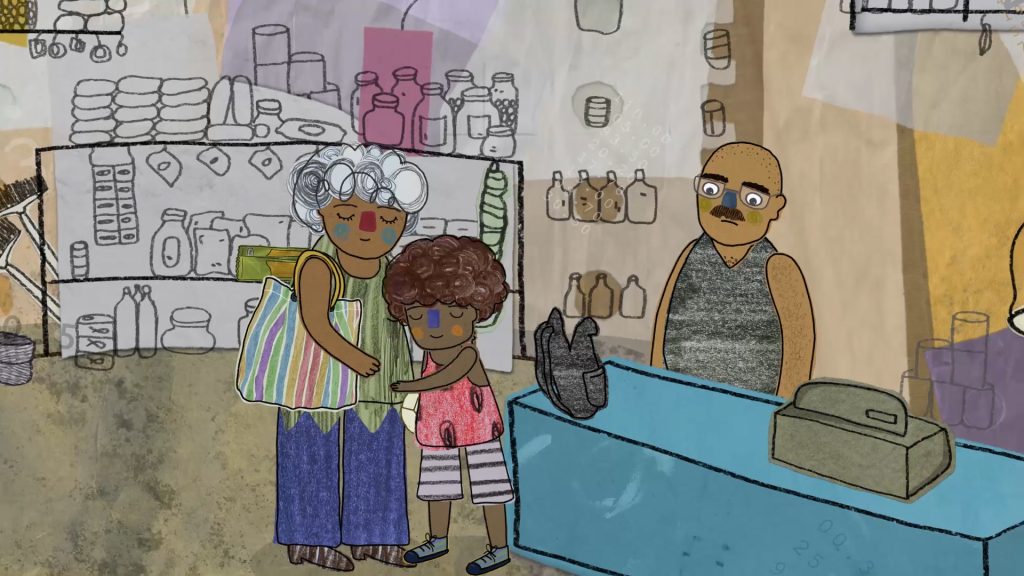
These words are part of the story of Estefanny, a young woman from Uruguay and representative of the NNAPES Platform, who told her story in the conversation dedicated to the problem of children and adolescents with adult references deprived of liberty, within the framework of the Commemorative Days for the 10 years of the Legal Research Institute of the University of Chiapas.
The instance was organized by researcher Corina Giacomello, member of the Institute’s Criminal Policy Research Group. Giacomello commented that this “is an issue that is quite invisible, we only think of the person who is deprived of liberty, we rarely turn to see the families that are made up of children and adolescents supported by female caregivers.”
“The deprivation of liberty means the deprivation of childhood,” said Chiara Altafil, research director at Global Campus Human Rights (Venice, Italy), who also participated in the discussion and presented the global study on childhoods deprived of liberty.
This study seeks to reconcile the exercise of rights with the criminal justice system, from pretrial detention, sentencing, separation and reinsertion, Altafil said.
Among its conclusions, the research indicates that strict regulations are not effective because they do not allow careful evaluation between the different interests that are at stake on a case-by-case basis, for which many problems could be avoided if non-custodial measures are applied.
From the NNAPES Platform, in addition to Estefanny, Luciano Cadoni, representative of Church World Service Latin America and the Caribbean, participated, who presented the work that the coalition has been doing, at the regional level, in terms of good practices in advocacy and awareness of the theme.
“There is a lot to be done, there is a lot of pain, a lot of violence, a lot of actions and a lot of losses that could be mitigated if there were actions that were taken in due time and if those who have to do things do them,” said Cadoni.
Estefanny: A story of resilience
Estefanny lived her adolescence marked by her father’s imprisonment. At the age of 15, he had to stop studying, take care of his younger brother and dedicate himself to providing for his family, since his mother was ill and died shortly after his father was imprisoned. In addition to this, in the absence of her mother, she was also the one who had to follow her father’s case at the judicial level.
“We did not receive any help from the State, my mother was sick and could not work and we began to support ourselves with garbage collection, which my father used to do, and since he was deprived of liberty I had to do it with a neighbor. the neighborhood,” he recalled.
The young woman expressed that it was from the support of the organization Gurises Unidos that they were able to get ahead. “I learned what a psychologist was thanks to Gurises Unidos,” he said, adding that his brother also had help at an educational level. Even the organization managed the possibility so that they could visit their father after the death of their mother.
“Today I speak it with tremendous naturalness, because I already lived it, I accepted it and I got over it, but at that moment you wanted to go because he was your father and you hadn’t seen him for a week, but you didn’t want to go because they treated you horrible and you had no privacy,” he commented on the difficult time of prison visits.
Her father is currently free, however, his passage through that site affected him in such a way that it caused a break in the bond between father and daughter: “When he came out, the relationship distanced a bit, we did not have the same trust, we had more conflicts, he didn’t get a job, he had to go back to collecting garbage, the state didn’t give him anything.”
Despite all the difficulties she has had to live through, Estefanny and her brother have come out ahead: “Today I am proud of him, because he was able to finish studying, he works, he is a father, he gives me that peace of mind that things were done well and that we were both able to go our separate ways despite what we went through 10 years ago.”
For her, it is essential that states develop specific policies that allow addressing this situation from the moment of the arrests until the departure and reintegration of family members. In this sense, better conditions for visits must be achieved, as well as financial and psychological support for families in the process of depriving their relatives of liberty. It is also important that judicial processes be expedited, since families have the right to know how long their relatives will be deprived of liberty.




